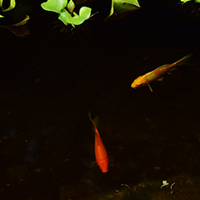Giving words to emotions: the use of linguistic analysis to explore the role of alexithymia in an expressive writing intervention

Submitted: February 7, 2020
Accepted: April 21, 2020
Published: September 7, 2020
Accepted: April 21, 2020
Abstract Views: 1559
PDF: 800
HTML: 33
HTML: 33
Publisher's note
All claims expressed in this article are solely those of the authors and do not necessarily represent those of their affiliated organizations, or those of the publisher, the editors and the reviewers. Any product that may be evaluated in this article or claim that may be made by its manufacturer is not guaranteed or endorsed by the publisher.
All claims expressed in this article are solely those of the authors and do not necessarily represent those of their affiliated organizations, or those of the publisher, the editors and the reviewers. Any product that may be evaluated in this article or claim that may be made by its manufacturer is not guaranteed or endorsed by the publisher.
Similar Articles
- Diego Rocco, Silvia Salcuni, Elena Antonelli, A pilot study of the Italian adaptation of the Session Evaluation Questionnaire fourth version , Research in Psychotherapy: Psychopathology, Process and Outcome: Vol. 20 No. 2 (2017)
- Tomáš Řiháček, Jan Roubal, Katarína Motalová, Facets of the psychotherapy relationship: a metaphorical approach , Research in Psychotherapy: Psychopathology, Process and Outcome: Vol. 23 No. 3 (2020)
- Salvatore Gullo, Ilaria Misici, Arianna Teti, Michele Liuzzi, Enrico Chiara, Going through the lockdown: a longitudinal study on the psychological consequences of the coronavirus pandemic , Research in Psychotherapy: Psychopathology, Process and Outcome: Vol. 23 No. 3 (2020)
- Hubert de Condé, Emmanuelle Zech, Jochem Willemsen, The person behind the therapist: a recall study on significant events that contribute to therapists’ personal and professional development , Research in Psychotherapy: Psychopathology, Process and Outcome: Vol. 27 No. 2 (2024)
- Cristina Marogna, Chiara Masaro, Vincenzo Calvo, Simona Ghedin, Floriana Caccamo, The extended unconscious group field and metabolization of pandemic experience: dreaming together to keep cohesion alive , Research in Psychotherapy: Psychopathology, Process and Outcome: Vol. 25 No. 3 (2022): SPECIAL ISSUE: "Group psychotherapy: between settled benchmarks and new horizons"
- Zelda Gillian Knight, My story in response to the stories of my patients’ experience of the impact of the COVID-19 pandemic: a relational psychoanalytic approach , Research in Psychotherapy: Psychopathology, Process and Outcome: Vol. 23 No. 3 (2020)
- Júlia Halamová, Jana Koróniová, Martin Kanovský, Mária Kénesy Túniyová, Nuriye Kupeli, Psychological and physiological effects of emotion focused training for self-compassion and self-protection , Research in Psychotherapy: Psychopathology, Process and Outcome: Vol. 22 No. 2 (2019)
- Nina Jakhelln Laugen, Torun Grøtte, Truls Ryum, Patrick A. Vogel, Heidi Brattland, Katrine Høyer Holgersen, Something has sort of opened up for me: psychology students’ reflections after participating in an apprenticeship training model , Research in Psychotherapy: Psychopathology, Process and Outcome: Vol. 27 No. 2 (2024)
- John E. Lothes II, Kirk D. Mochrie, Emalee J.W. Quickel, Jane St. John, Evaluation of a dialectical behavior therapy-informed partial hospital program: outcome data and exploratory analyses , Research in Psychotherapy: Psychopathology, Process and Outcome: Vol. 19 No. 2 (2016)
- Riccardo Williams, Davide Belluardo, Fiorella Fantini, Valentina Postorino, Francesca Ortu, Problemi metodologici nello studio del processo psicoterapico e nella valutazione dell'attaccamento e del rischio psicopatologico in adolescenza , Research in Psychotherapy: Psychopathology, Process and Outcome: Vol. 13 No. 2 (2010)
<< < 8 9 10 11 12 13 14 15 16 17 > >>
You may also start an advanced similarity search for this article.

 https://doi.org/10.4081/ripppo.2020.452
https://doi.org/10.4081/ripppo.2020.452




